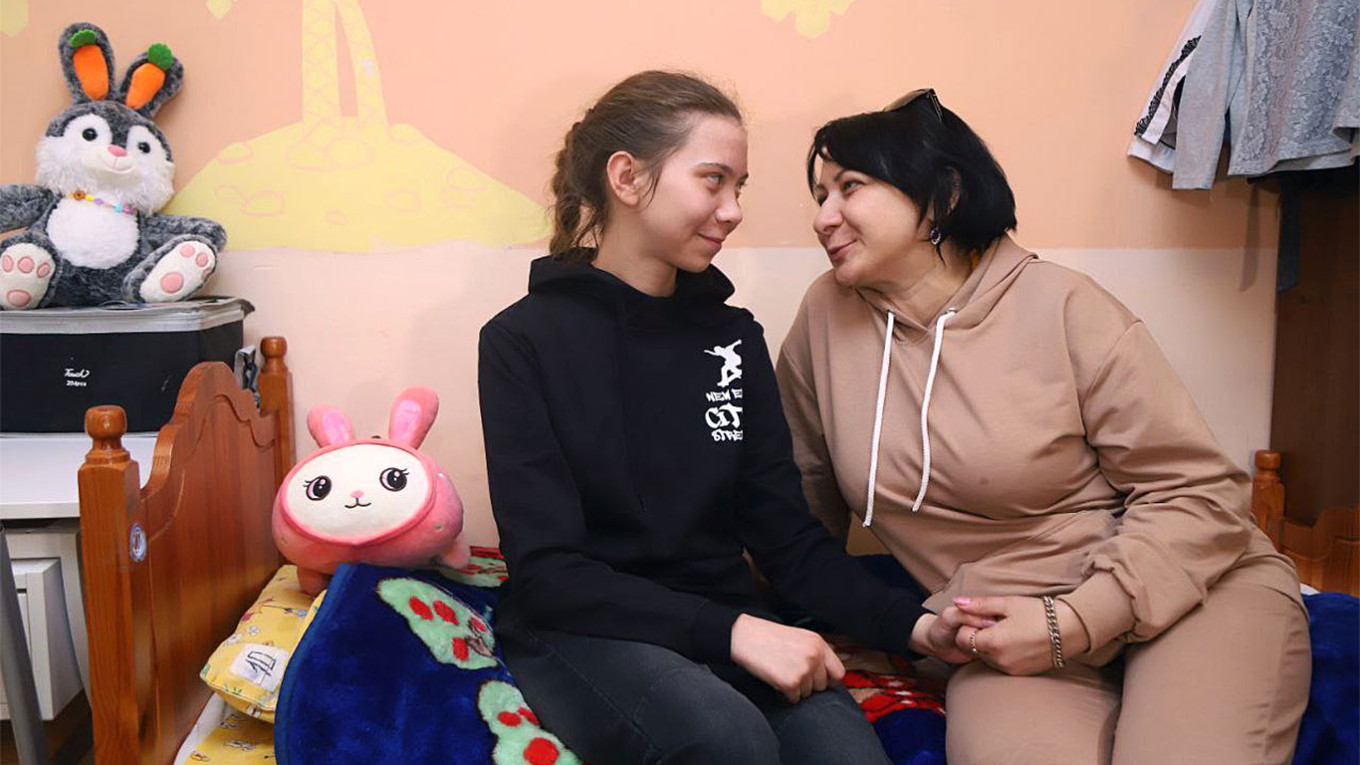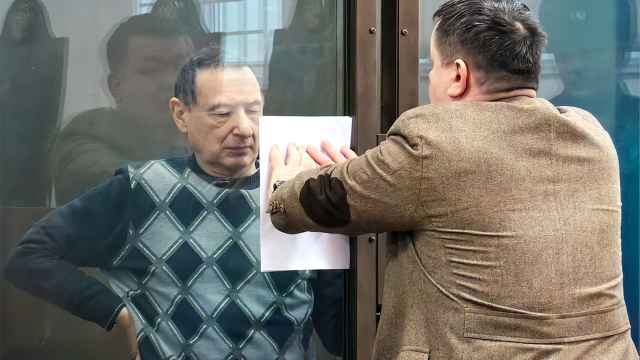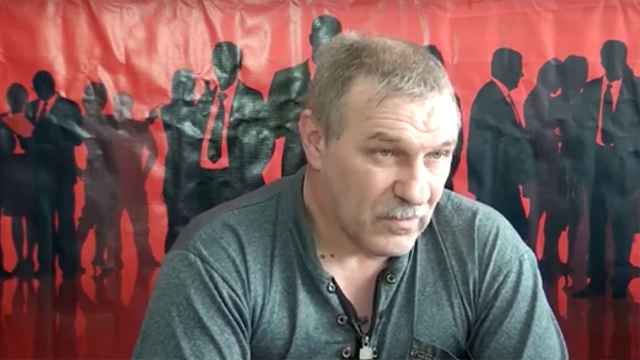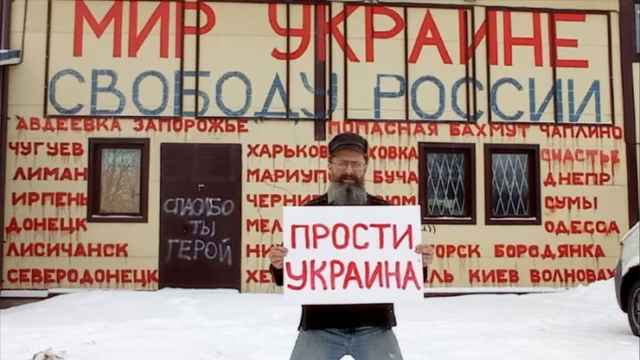Maria Moskaleva, the daughter of the single father who was detained after fleeing house arrest on the eve of his sentencing in a criminal case for “discrediting” the Russian military, has been handed over to her estranged mother, Russian media reported Thursday.
In early March, Russian authorities separated 13-year-old Maria Moskaleva from her father Alexei Moskalev, and placed her in a juvenile detention center in her hometown of Yefremov, in Russia’s western Tula region.
Following a police investigation last year, Moskalev was charged with breaking wartime censorship laws for anti-war comments he made on social media.
However, the 53-year-old fled house arrest in late March, only to be apprehended by the authorities in the Belarusian capital Minsk a few days later.
Moskalev had been due to appear in court in Yefremov on Thursday for a hearing that was expected to see him deprived of custody of his daughter, but civil rights organization OVD-Info reported he was a no-show at the hearing.
The court also said it did not know his whereabouts.
Ahead of the trial, Russia's children's rights commissioner Maria Lvova-Belova, who along with Russian President Vladimir Putin is wanted by the International Criminal Court over the “unlawful deportation” of Ukrainian children, announced Maria had been handed over to her mother to whom she had not spoken for over seven years.
"As many know, [Maria] did not live with her [mother] for a long time, and they rarely communicated," Lvova-Belova wrote on Telegram Wednesday.
According to the official, Maria did not initially want to live with her mother, but later the teenager’s “position changed — she told me this herself over the phone.”
Tula activist Elena Afagonova, who had hoped to look after Maria, told journalists that Maria's mother wouldn't allow her to speak to her daughter.
The Kremlin has defended the case against Moskalev, describing his parenting as "deplorable."
AFP contributed reporting.
A Message from The Moscow Times:
Dear readers,
We are facing unprecedented challenges. Russia's Prosecutor General's Office has designated The Moscow Times as an "undesirable" organization, criminalizing our work and putting our staff at risk of prosecution. This follows our earlier unjust labeling as a "foreign agent."
These actions are direct attempts to silence independent journalism in Russia. The authorities claim our work "discredits the decisions of the Russian leadership." We see things differently: we strive to provide accurate, unbiased reporting on Russia.
We, the journalists of The Moscow Times, refuse to be silenced. But to continue our work, we need your help.
Your support, no matter how small, makes a world of difference. If you can, please support us monthly starting from just $2. It's quick to set up, and every contribution makes a significant impact.
By supporting The Moscow Times, you're defending open, independent journalism in the face of repression. Thank you for standing with us.
Remind me later.






